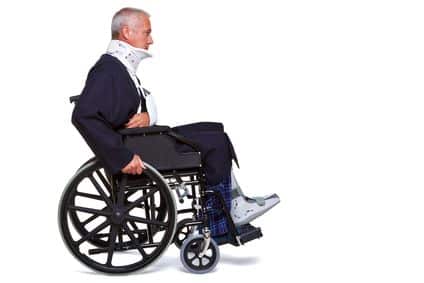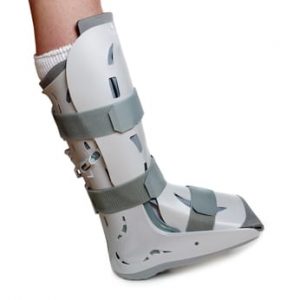Proving that your case is catastrophic has many benefits. However, there are many pitfalls you need to watch out for. This article will discuss a couple of the pitfalls of catastrophic designation in a Georgia workers’ compensation claim.
One of those pitfalls is is getting the evidence you need to prove your catastrophic case. The other pitfall is that insurance companies will often tell injured workers that they need to settle their catastrophic case because they have reached retirement age and will thus lose their catastrophic designation.
Proving that Your Case is Catastrophic
If you or your attorney are considering filing for catastrophic designation, you probably know that your injury keeps you from working. But the insurance company will require that you prove that to a judge.
You will need to provide the evidence you need to prove your case in court. If you do not have the evidence necessary to prove your case, you will probably lose. So, what do you need to prove your case?
What type of evidence of work restrictions do I need?
You need evidence to show that you meet the definition for catastrophic designation. As we discussed in our article about proving catastrophic designation, you have to prove that you have one of six types of catastrophic injury.
There are five specific types of injuries and then the “catch all” catastrophic provision. You need medical evidence from your doctor to prove each type.
Most catastrophic cases come under the “catch all” category instead of the five specific injury categories. The “catch all” is also the category where getting the evidence you need from your doctor can be most difficult.
The only way medical evidence will help you win your “catch all” catastrophic case is if it allows a vocational expert to testify that you cannot perform your prior work or other work available in substantial numbers in the national economy. Because of this, whether you win or lose your case can often come down to exactly what type of work restrictions your doctors give you.
 There are some work restrictions that may keep you from doing all kinds of jobs. For example, if you cannot lift very much, cannot sit very long, and cannot stand very long, then there is a good chance that you are not going to be able to do any work. Most jobs require you to be able to either sit or stand for an extended period and most jobs require you to lift.
There are some work restrictions that may keep you from doing all kinds of jobs. For example, if you cannot lift very much, cannot sit very long, and cannot stand very long, then there is a good chance that you are not going to be able to do any work. Most jobs require you to be able to either sit or stand for an extended period and most jobs require you to lift.
You may know that you have a severe injury that gives you restrictions that prevent you from working. But if your doctor does not clearly state those restrictions, then the vocational expert and the workers’ compensation administrative law judge will not have the evidence to determine that your work injury is catastrophic. It is very important for your treating doctors to be very specific about all the ways that your injury can affect your ability to work.
You also have to prove that you cannot do your prior work in order to qualify for a catastrophic designation. If your prior work was physically demanding, this may be easy. If your prior work was not physically demanding, then it is going to be more difficult. However, if you do not establish that you cannot do your prior work, you will probably lose your catastrophic case (unless you can prove that you have suffered one of the five specific types of catastrophic injuries).
Will my benefits stop when I reach retirement age?
Even when you get your case designated catastrophic, insurance companies still try to convince you that your temporary total disability benefits will stop when you reach retirement age. The insurance companies try to do this to convince you that you should take less money to settle your case.
There is a law that does talk about catastrophic designation and retirement age. That law is O.C.G.A. § 34-9-200.1(g)(6)(B). It became effective July 1, 2005. It provides:
- Once an employee who is designated as having a catastrophic injury under this subsection has reached the age of eligibility for retirement benefits as defined in 42 U.S.C. section 416(1), as amended March 2, 2004, there shall arise a rebuttable presumption that the injury is no longer a catastrophic injury;
From just reading this law, it appears that you will lose your workers’ compensation benefits at Social Security retirement age. But, as the old saying goes, appearances can be deceiving.
Insurance companies have suggested that the intent of the Georgia workers’ compensation law was to take away income benefits at Social Security retirement age. Otherwise, a catastrophically injured worker can continue to receive benefits for life.
 But, is that really the intent? There is something wrong with taking those benefits away from catastrophically injured workers. Many people now work well beyond Social Security retirement age. When their workers’ compensation injury prevents them from doing that, they should continue to receive benefits.
But, is that really the intent? There is something wrong with taking those benefits away from catastrophically injured workers. Many people now work well beyond Social Security retirement age. When their workers’ compensation injury prevents them from doing that, they should continue to receive benefits.
How can I prevent my benefits from stopping?
Even if an insurance company tries to stop your benefits, there are a number of legal arguments that a workers’ compensation attorney can make to show that the insurance company’s position is not correct.
Also, the language from O.C.G.A. §34-9-200.1(g)(6)(B) only creates a “rebuttable presumption” that the injury is no longer catastrophic. Basically, “rebuttable presumption” is a technical legal term. It means that the law is going to assume that your injury is no longer catastrophic unless you prove otherwise.
But you can prove otherwise, and you should almost always try to do so.
Getting help with a catastrophic designation
Catastrophic designation is a very complicated area of the Georgia workers’ compensation law. You do not have to have an attorney to handle any part of your workers’ compensation case, but this is an area of the law where you are almost certainly making a mistake if they do not get an attorney. There are simply too many pitfalls in proving your catastrophic case for it to be a good decision to try to do it on your own.
Before you call up an attorney and hire them, it is usually a good idea to talk to them about your case and find out how they would be able to help you. Our firm offers free consultations with me and our other workers’ compensation attorneys.









